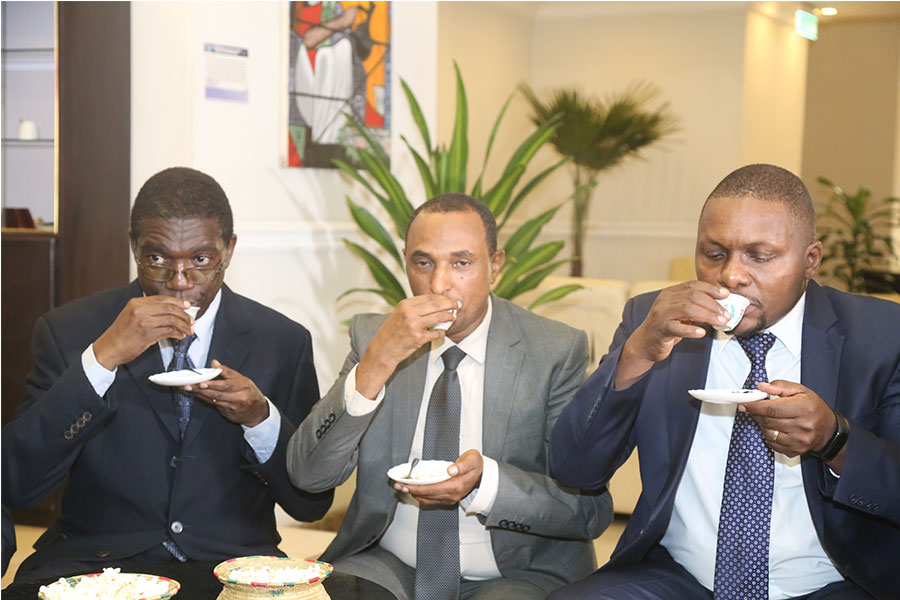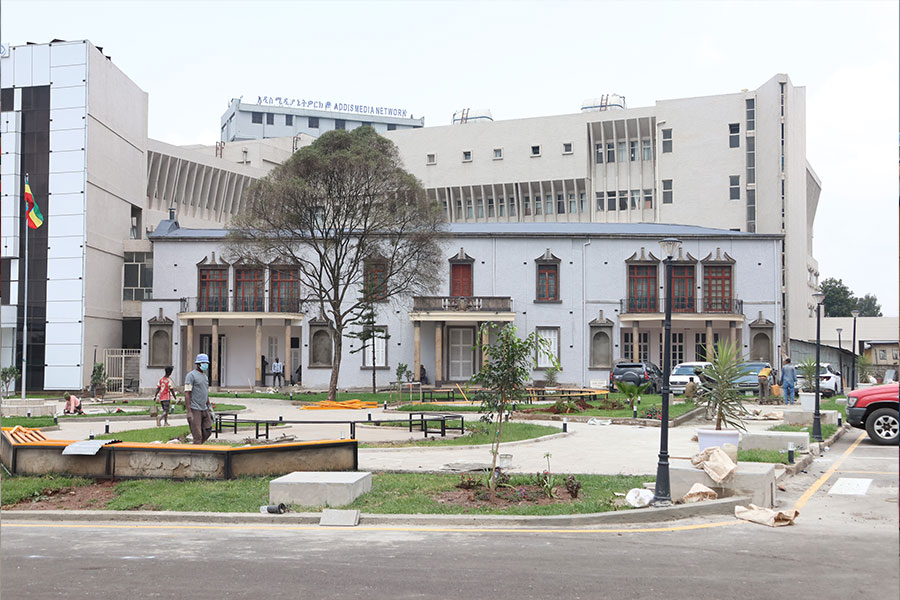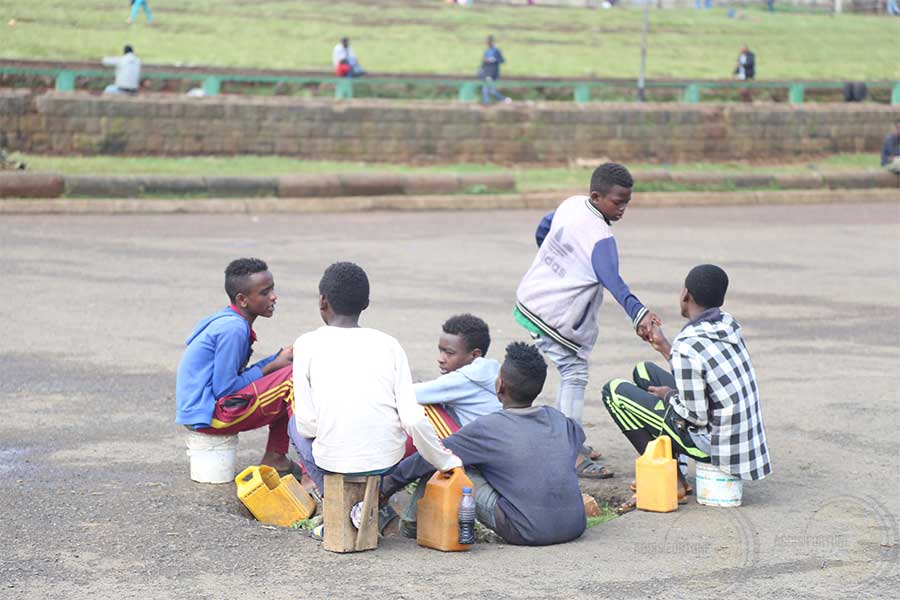
Radar | Jul 06,2019
Feb 17 , 2024
By Mirei Endara de Heras
Mirei Endara de Heras, a former environment minister of Panama, is co-founder and chairwoman of the Board of Marea Verde, a Panama-based nonprofit addressing global plastic pollution through local action. This article is provided by Project Syndicate (PS).
As the United Nations (UN) enters the final stretch of negotiations for a new treaty to end plastic pollution, governments must ensure that the agreement reduces plastic production and strengthens local initiatives to remove and recycle existing plastic waste.
Consider the Juan Diaz River, which runs through my hometown of Panama City. Tons of plastic – bottles and other detritus – bob in the river’s currents, owing to poor waste management. Faced with this problem, Marea Verde (“Green Tide”), a non-profit organisation that I co-founded, has installed a trash-trapping water wheel – dubbed the “Wanda” device – that now collects much of this waste before it reaches the ocean.
Local initiatives like ours are necessary to achieve global climate goals. This is especially true for eliminating plastic pollution, largely driven by local consumption decisions. The new UN treaty should thus balance top-down efforts to reduce plastic production and ban the use of toxic chemicals in these products with support for on-the-ground efforts to recycle, reuse, or transform sustainably the billions of tons of plastic already clogging the world’s waterways and harming the environment.
Otherwise, the ocean will contain more plastics than fish by 2050, and new diseases caused by microplastics – which have already been detected in human blood – could become commonplace.
So far, stakeholders are split on how best to proceed. During the latest round of treaty negotiations, held in Nairobi last November, the plastics industry and some oil- and petrochemical-exporting countries called for more emphasis on recycling and reuse, while environmental campaigners and other governments advocated production curbs. To reach a consensus by late this year, the two sides must be brought into alignment and agree on an integrated approach that links global goals to local action.
Working in government and non-profits, I have experienced first-hand how a disconnect between international plans and on-the-ground realities can thwart progress and breed cynicism. That is why we at Marea Verde adapt ideas successfully implemented elsewhere – from the United States to Nigeria and Australia – to our context and culture.
For example, our Wanda device is based on Clearwater Mill's trash wheels, a clean-energy technology that debuted in the US but is customised for a tropical ecosystem. Over the past year, Wanda has collected more than 130 tons of trash from the Juan Diaz River – a more effective intervention than fishing plastics from the sea or beach clean-ups. Replicating this model worldwide could dramatically reduce land-sourced debris, which accounts for 80pc of ocean plastic pollution.
Fortunately, many other organisations focus on river clean-up to prevent new plastic waste from entering the ocean. Eight of these groups – including Marea Verde – are participating in the Clean Currents Coalition, a network of projects piloting innovative waste-removal technologies in river communities worldwide. Coalition members can share knowledge and work collaboratively while encouraging and facilitating effective on-the-ground action.
The plastic crisis results from human activities, and solving it calls for behavioural change. This can only be accomplished through initiatives that engage local communities. For example, Marea Verde organises and empowers residents in areas without recycling facilities by going door to door to collect plastic waste. As a result, many people have become aware of their ability to improve their surroundings, leading them to participate in neighbourhood clean-ups, reclaim green spaces, and lobby for better waste management.
The lack of local data in many developing countries, including Panama, can make it difficult to design climate policies that are fit for purpose. That is why Marea Verde is also building databases on the volume and types of plastic trash in Panama’s rivers, which will improve reporting, help urban planning, and demonstrate the scale of the crisis.
Efforts to counter plastic pollution must be equal to the size of the problem. To that end, the new UN treaty should include severe curbs on plastic production to choke off output and give clean-up efforts a fighting chance. But it must also support the local groups at the forefront of tackling the plastic problem. These groups’ innovative strategies, tools, and data-gathering practices can serve as a model for the global community.
This is not an either/or decision, as international regulations and local action are needed. The latter is already underway and is making a difference, one community and one river at a time.
PUBLISHED ON
Feb 17,2024 [ VOL
24 , NO
1242]


Radar | Jul 06,2019

My Opinion | May 31,2020

Films Review | Aug 24,2019

Commentaries | Jun 07,2020

Life Matters | Mar 28,2020

Covid-19 | May 09,2020

In-Picture | Jul 06,2025

Radar | Nov 07,2020

Radar | Sep 08,2019

Viewpoints | Jun 10,2023

Photo Gallery | 177263 Views | May 06,2019

Photo Gallery | 167470 Views | Apr 26,2019

Photo Gallery | 158108 Views | Oct 06,2021

My Opinion | 136976 Views | Aug 14,2021
Commentaries | Oct 25,2025

Dec 22 , 2024 . By TIZITA SHEWAFERAW
Charged with transforming colossal state-owned enterprises into modern and competitiv...

Aug 18 , 2024 . By AKSAH ITALO
Although predictable Yonas Zerihun's job in the ride-hailing service is not immune to...

Jul 28 , 2024 . By TIZITA SHEWAFERAW
Unhabitual, perhaps too many, Samuel Gebreyohannes, 38, used to occasionally enjoy a couple of beers at breakfast. However, he recently swit...

Jul 13 , 2024 . By AKSAH ITALO
Investors who rely on tractors, trucks, and field vehicles for commuting, transporting commodities, and f...

Oct 25 , 2025
The regulatory machinery is on overdrive. In only two years, no fewer than 35 new pro...

Oct 18 , 2025
The political establishment, notably the ruling party and its top brass, has become p...

Oct 11 , 2025
Ladislas Farago, a roving Associated Press (AP) correspondent, arrived in Ethiopia in...

Oct 4 , 2025
Eyob Tekalegn (PhD) had been in the Governor's chair for only weeks when, on Septembe...

Oct 25 , 2025 . By YITBAREK GETACHEW
Officials of the Addis Abeba's Education Bureau have embarked on an ambitious experim...

Oct 26 , 2025 . By YITBAREK GETACHEW
The federal government is making a landmark shift in its investment incentive regime...

Oct 26 , 2025 . By NAHOM AYELE
The National Bank of Ethiopia (NBE) is preparing to issue a directive that will funda...

Oct 26 , 2025 . By SURAFEL MULUGETA
A community of booksellers shadowing the Ethiopian National Theatre has been jolted b...